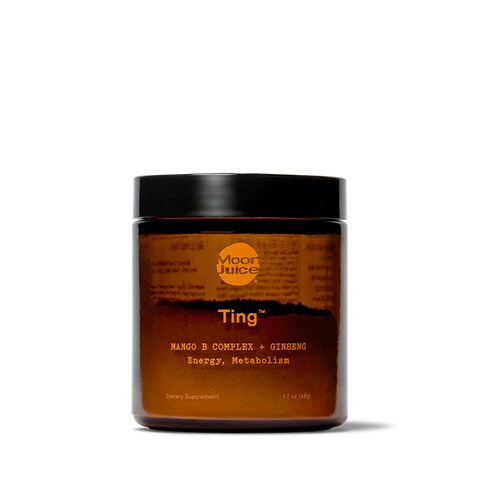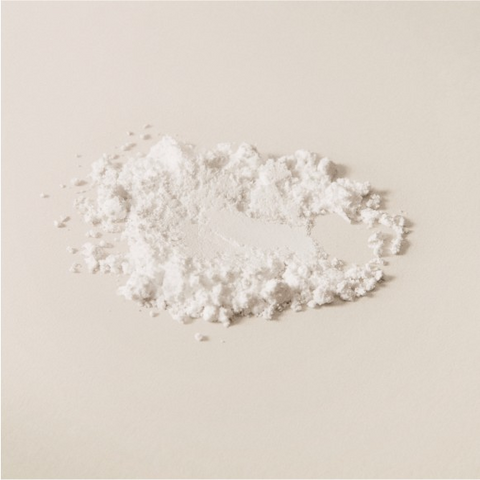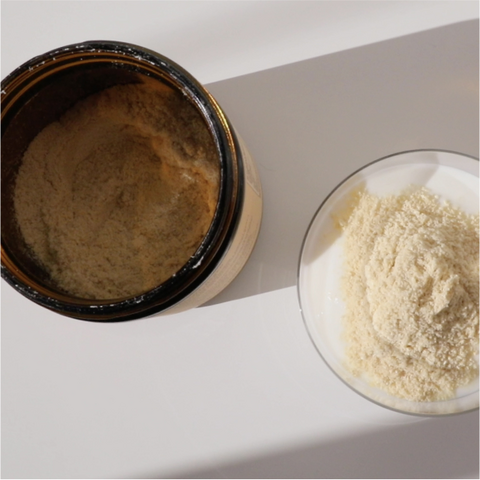The difference between Vitamin B12 and B Complex lies in their composition and benefits. Vitamin B12 is a single nutrient crucial for nerve function and red blood cell production, often emphasized in plant-based diets and pregnancy. B Complex includes all eight essential B vitamins, including B12, providing a balanced intake to support overall health. Consider your specific health needs and dietary intake when deciding between vitamin B Complex and B12 dietary supplements.
If you’re looking to up your B intake and aren’t sure which kind of B vitamin supplementation is right for you, we break down the differences and benefits of Vitamin B12 vs. B Complex below.
B Vitamins 101
B vitamins are a group of water-soluble vitamins essential to many physiological processes, each with unique roles but often working together to support energy production, cognitive function, and red blood cell formation.
There are eight B vitamins in total, including:
- Vitamin B1 (thiamine)
- Vitamin B2 (riboflavin)
- Vitamin B3 (niacin)
- Vitamin B5 (pantothenic acid)
- Vitamin B6 (pyridoxine)
- Vitamin B7 (biotin)
- Vitamin B9 (folic acid)
- Vitamin B12 (cobalamin).
These vitamins are crucial for DNA synthesis, amino acid metabolism, and maintaining healthy blood cells. A deficiency in any of these B vitamins can lead to various health issues. For instance, a Vitamin B12 deficiency, common in plant-based diets, can lead to pernicious anemia and neurological issues, while a lack of Vitamin B2 or B3 can impact energy metabolism and skin health.
As the body doesn’t store these water-soluble vitamins, a consistent dietary intake is essential. Good sources include dark leafy greens, whole grains, nuts, and animal products like eggs and dairy. For those at risk of deficiency, a B Complex vitamin supplement or a B12 supplement can help meet daily needs, ensuring that the body has adequate levels to support overall health and function.
What is B12?
Vitamin B12, also known as Cobalamin, is a chemically complex vitamin often found in animal-sourced foods like fish, red meat, poultry, liver, eggs, and dairy. This is why vegetarians and vegans are often low in it! B12 is an essential nutrient for several processes in the body like metabolic function, nerve function regulation, red blood cell creation, and DNA production.
Certain fortified foods, like fortified nutritional yeast, or enriched soy milk, serve as good sources of B12 for those who might not be getting any in their diet. But if you’re plant-based, it’s difficult to get an adequate amount of B12 from food alone. That’s why it’s essential to supplement with B12 if you follow a mostly vegetarian or vegan diet or if you have a B vitamin deficiency. If you have a severe B vitamin deficiency, your doctor might even prescribe you muscular Vitamin B12 injections.
What is B Complex?
The B Complex vitamin is made up of 8 different B Vitamins that are essential to your body’s metabolic processes and overall function:
- Vitamin B1 (thiamine)
- Vitamin B2 (riboflavin)
- Vitamin B3 (niacin)
- Vitamin B5 (pantothenic acid)
- Vitamin B6 (pyridoxine)
- Vitamin B7 (biotin)
- Vitamin B9 (folic acid)
- Vitamin B12 (cobalamin)
You can find multiple B Vitamins in a wide range of food sources, from dairy products like milk, cheese, and eggs, to meat and fish, to plant-based products like dark leafy greens, avocados, beans, chickpeas, whole grains, nuts, seeds, citrus, watermelon, and soy. These foods are all good sources of essential B vitamins, making it easier to incorporate them into a balanced diet.
That being said, it’s important to eat a varied diet to ensure you’re meeting each of your B Complex Vitamin needs. Vitamin B is a water soluble vitamin, which means that your body doesn’t store them, so you need to get them regularly through diet and, potentially, through a vitamin B supplement.
Some people may need to consume more B Vitamins than others. If you follow a plant-based diet, are older in age, use certain medications, or are pregnant or nursing, you should talk to your health care practitioner to make sure you’re getting adequate B’s in the right amounts. Taking a B vitamin supplement can help prevent deficiencies and ensure your body gets the essential nutrients it needs.
Benefits of B12
On its own, Vitamin B12 powers a number of functions in the body.1 It can provide essential support for healthy bones as you age, and it likely benefits memory retention, cognitive function, and brain health by preventing the loss of neurons.2 It’s also needed for the production and metabolism of the chemical serotonin, which helps regulate mood.
In fact, studies have shown that those with a vitamin B12 deficiency has been linked to depression and various other mental and physical problems.3 Because B12 is a mood-boosting vitamin and supports healthy serotonin synthesis, it’s important to maintain adequate levels of this vital nutrient in order to avoid mood imbalance.
Does Vitamin B12 give you energy? It does! B12 deficiency can show up as fatigue or weakness—that’s because it plays a central role in producing red blood cells that carry oxygen throughout our bodies. It also supports healthy metabolic function, which is how your body gets energy from food. If these processes are impacted, it’s likely that your energy will take a hit.
B12 deficiency can show up as fatigue or weakness—that’s because it plays a central role in producing red blood cells that carry oxygen throughout our bodies.
Benefits of B Complex
Curious why all the B Vitamins get grouped together? It’s because these water-soluble vitamins work synergistically to support certain key processes throughout the body, such as metabolism. Some work directly in these areas, others indirectly, and they all share properties like water solubility.
Here’s a list of several functions that involve B Vitamins:4
- Metabolism (& therefore energy)
- Neurological function
- DNA production & repair
- Nerve function
- Gene expression
- Digestion & appetite
- Hormone & cholesterol production
- Cellular signaling
- Neurotransmitter creation
- Infection prevention
- Muscle tone
- Eyesight
- Blood cell production
- Cell growth & division
B vitamins are crucial for energy via our metabolism, the process that keeps us alive by converting food into cellular currency, or ATP. They’re known as coenzymes, meaning they assist our enzymes that release energy from food. While they don’t provide energy directly (only food can), they help turn the food we eat into energy that our bodies can actually use.
B1, B2, B3, and B5 are directly involved in breaking down glucose to produce energy, while the rest are involved in metabolism and energy production support. Because of this property, a vitamin B deficiency can manifest as low energy, fatigue, brain fog, and low mood.
B Complex supplements are also important for women who are pregnant or breastfeeding because B Vitamins, especially folate and B12, assist in fetal development and reduce the risk of birth defects.5,6 Additionally, a daily B vitamin can help pregnant people keep up their energy stores and potentially relieve morning sickness. If you’re looking for B support during pregnancy or postpartum, consult your doctor about which B Complex supplement they’d recommend.
Differences Between B12 and B Complex
What’s the difference between B12 vs. B Complex? B12 is a single vitamin, while B Complex is a blend of multiple B Vitamins—including B12. Though you can take a B12 supplement separately (and many plant-based people do), it’s best to take them together, as the vitamins work synergistically to support energy, metabolism, and DNA/RNA synthesis. Because they work in concert, people who are deficient in one or more B vitamins would likely benefit from full-spectrum support.
If you’re looking to support healthy energy and mood, Ting™ is a B Vitamin supplement with B Complex, B12, and adaptogenic Ginseng (just note that this is not a prenatal vitamin, as ginseng is not recommended during pregnancy). Our B Complex, extracted from organic Tulsi and Guava, provides cofactors to help convert fat, protein, and carbs into ATP that the body’s cells can use for fuel. Methylated B12 supports normal serotonin levels, while Adaptogenic Ginseng brings the calming energy. Add 1/2 teaspoon to 16 ounces of water daily to get in your B’s.
Should I Take B12 or B Complex?
Choosing between B12 and B Complex depends on your specific health needs and dietary intake. If you follow a plant-based diet, have been diagnosed with a B12 deficiency, or need targeted support for nerve function and red blood cell production, a standalone vitamin B12 supplement might be necessary. This is particularly crucial for vegetarians, vegans, and individuals with certain medical conditions that impair B12 absorption.
On the other hand, if you're looking for comprehensive support across multiple bodily functions, a vitamin B Complex supplement can be more beneficial. B Complex provides a balanced intake of all eight essential B vitamins, which work synergistically to support energy metabolism, neurological function, and overall health. This can be particularly advantageous for individuals who might be at risk of multiple B vitamin deficiencies, such as older adults, pregnant or nursing women, and those with restricted diets.
Consulting with a healthcare professional can help determine whether you need to supplement with B12, B Complex, or both, based on your health and dietary habits. Remember, maintaining adequate levels of these vital nutrients is key to supporting your overall well-being.

B12 Vs. B Complex: Which is Right for Me?
So what’s the takeaway? B Vitamins are essential for many processes in the body, specifically metabolism and energy. Did you know that there are other vitamins that provide energy? It’s true! You can also boost your energy naturally by making small changes to your lifestyle. These changes don’t have to include drinking more coffee as there are coffee alternatives for energy that you can try out as well.
Adequate daily intake depends on the person—especially if you’re following a plant-based diet or are pregnant or breastfeeding—but it’s a good idea to supplement with both B12 and B Complex, to ensure you’re getting the full-spectrum, synergistic benefits.
Sources
- Amarican Pregnancy Association. Pregnancy and Hair Loss. https://americanpregnancy.org/healthy-pregnancy/pregnancy-health-wellness/hair-loss-during-pregnancy/
- PubMed. Neuroenhancement with vitamin B12-underestimated neurological significance. https://pubmed.ncbi.nlm.nih.gov/24352086/
- PubMed. Association between vitamin b12 levels and melancholic depressive symptoms: a Finnish population-based study. https://pubmed.ncbi.nlm.nih.gov/23705786/
- PubMed Central. B Vitamins and the Brain: Mechanisms, Dose and Efficacy—A Review. https://pmc.ncbi.nlm.nih.gov/articles/PMC4772032/
- PubMed Central. Vitamin B-12 and Perinatal Health. https://pmc.ncbi.nlm.nih.gov/articles/PMC4561829/
- PubMed Central. Vitamin B12 Metabolism during Pregnancy and in Embryonic Mouse Models. https://pmc.ncbi.nlm.nih.gov/articles/PMC3798919/













